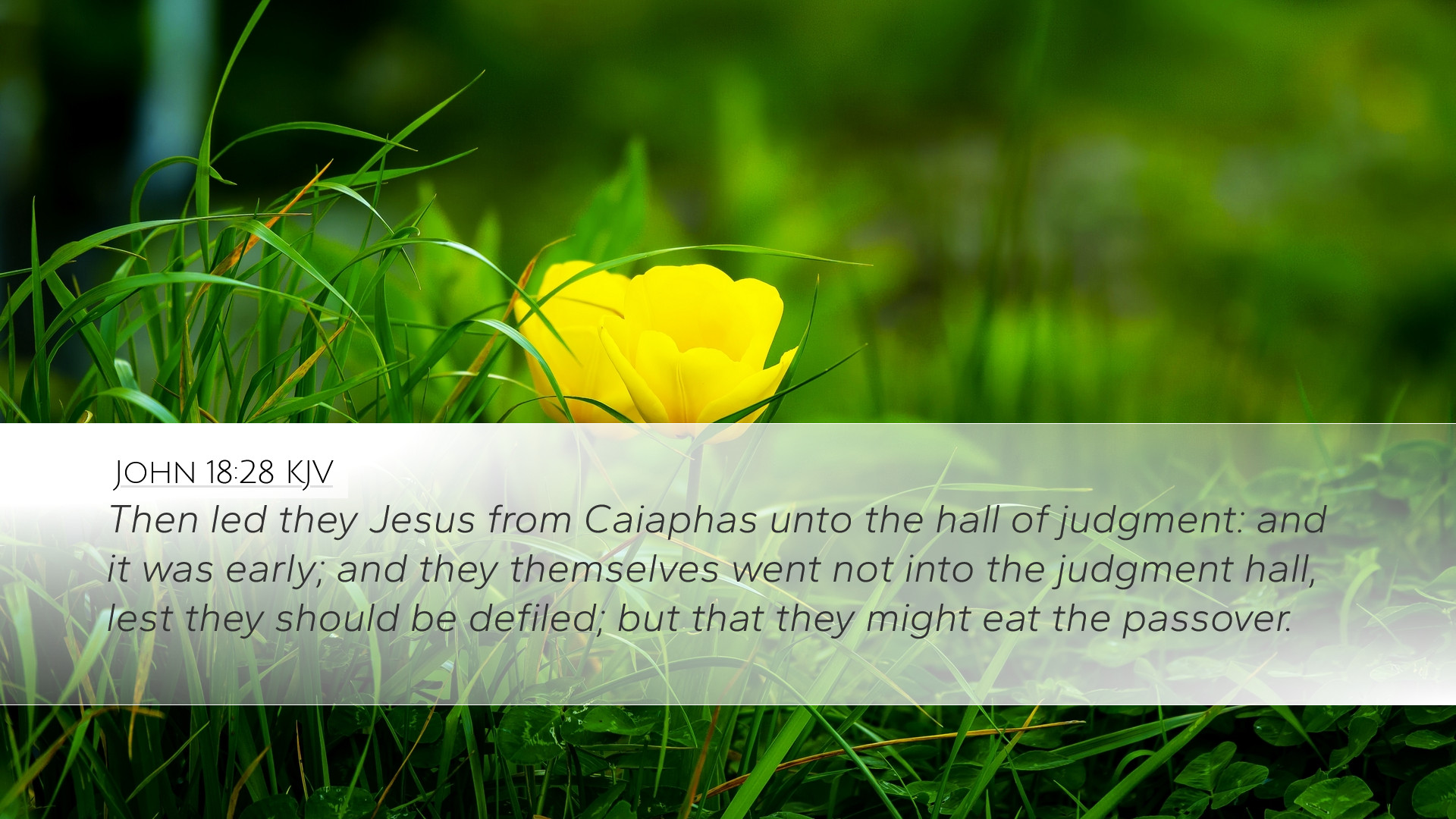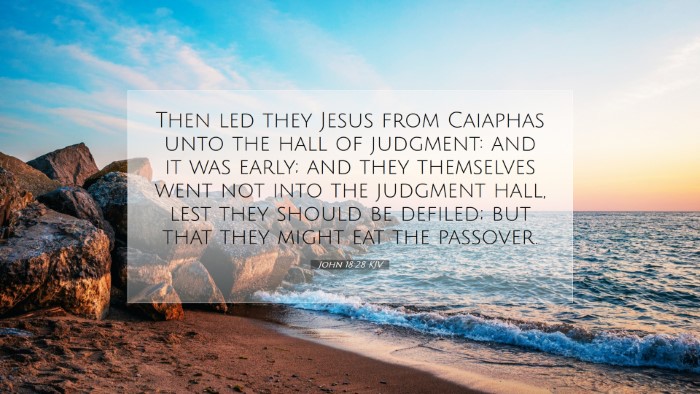Commentary on John 18:28
John 18:28 states: "Then led they Jesus from Caiphas unto the hall of judgment: and it was early; and they themselves went not into the judgment hall, lest they should be defiled; but that they might eat the passover."
This verse marks a significant point in the narrative of Jesus' trial, encapsulating both the physical and spiritual dimensions of the events leading to His crucifixion. The commentary below draws insights from several public domain resources, including Matthew Henry, Albert Barnes, and Adam Clarke.
Contextual Overview
In this passage, the chief priests and officers of the temple bring Jesus to the Roman Governorship to face charges of blasphemy and insurrection. The tension between the religious authorities and Jesus is palpable, as they seek to maintain their own piety while orchestrating His condemnation. The phrase "the hall of judgment" refers to the praetorium, the official residence of the Roman governor, where judgments were made.
Exegesis and Theological Insights
The Significance of Timing
The mention that it was early adds contextual weight to the events. Matthew Henry points out that the early hour of Jesus’ trial highlights the urgency and secretive nature of the trial conducted by the Jewish authorities. It was early, perhaps, in order to accomplish their plans without attracting public attention.
Religious Ritual vs. Moral Integrity
The hypocrisy of the religious leaders is evident in their concern for ritual purity as they avoid entering the judgment hall to prevent defilement. Albert Barnes comments on their focus on ceremonial law while they disregard the weightier matters of justice and mercy as they hand over an innocent man to be tried. Their actions encapsulate a broader theme of religious hypocrisy present throughout the Gospels.
Passover Significance
The reference to the Passover is deeply significant. Adam Clarke notes that the Passover symbolizes deliverance and salvation — themes that resonate profoundly within the crucifixion narrative. The irony is palpable; the very person who embodies the true Passover Lamb is being condemned to death by the very leaders who intend to celebrate it.
Judgment Hall Dynamics
The term "hall of judgment" carries implications about authority and moral judgment. The Roman authorities hold the political power, yet it is the religious leaders who instigate the trial. This dynamic raises questions about who holds true authority and how moral judgment is often at odds with political expediency.
Lessons for Pastors and Theologians
-
The Importance of Integrity: The tension between ritual observance and moral action serves as a cautionary tale for those in ministry. It reminds leaders to prioritize justice, mercy, and faithfulness over mere compliance with religious practices.
-
Understanding Cultural Context: The cultural and religious backdrop of the Passover and the dynamics of Jewish law versus Roman governance can provide a richer understanding of the text. Pastors and theologians are encouraged to delve into these contexts to grasp the full import of the narrative.
-
The Role of Hypocrisy: The verse invites reflection on personal and institutional hypocrisy within faith communities. It challenges both leaders and congregations to examine their motivations and behaviors concerning the integrity of their witness.
-
Theological Implications of Sacrifice: As Jesus becomes the Passover Lamb, His impending sacrifice transcends the Jewish festival, establishing Him as the final atonement for sin, which theologians should expound upon in their teachings and writings.
Conclusion
John 18:28 encapsulates a rich tapestry of theological themes including hypocrisy, authority, and sacrifice. Through the lens of public domain commentaries, we see the juxtaposition of ritual and reality, as well as the profound implications carried by Jesus’ trial. For pastors, students, theologians, and biblical scholars, this verse serves not only as a historical account but as a contemporary call to live authentically in the face of religious formality.


